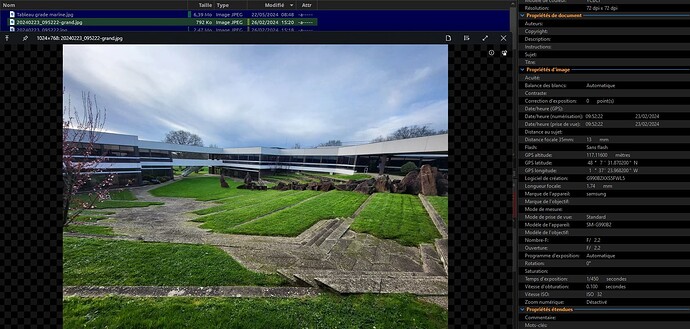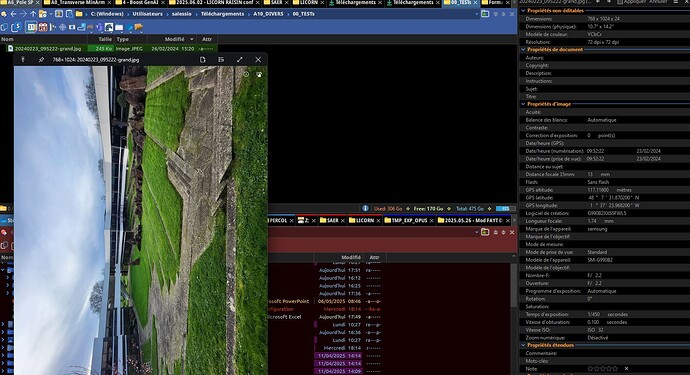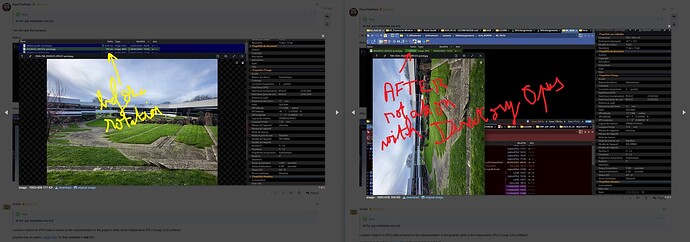Hi, I'm currently facing the following situation and would like to know if there's anything in the process I am doing that could be improved, or if it is actually a bug that needs fixing. Here's the situation: I set this command Show LISTERLINK USEEXISTING=yes,avoid on the image file types and it opens a linked viewer window.
By default, there were some buttons on the viewer for rotating the images. However, I realized that this only worked in the viewer and not on the actual file Show VIEWERCMD=rotate,-90. Therefore, I took the command used for rotating images and integrated it into the viewer's buttons:
Show VIEWERCMD=rotate,-90
Image ROTATE=-90 HERE REPLACE PRESERVEDATE
This way, the rotation is displayed as well as applied to the file itself. What I've noticed is that if I rotate an image, select another, and then return to the one I previously edited, it does some weird things displaying a rotation that is wrong. I tried to refresh using the command within the viewer Show VIEWERCMD=refresh but it did nothing.
If I close this viewer and reopen it, then it displays correctly. However, this isn't practical when you need to rotate multiple images and view them in large format. Thanks in advance.
Here's some recorded example and commands of the other buttons.
Show VIEWERCMD=rotate,+90
Image ROTATE=90 HERE REPLACE PRESERVEDATE
Show VIEWERCMD=rotate,-180
Image ROTATE=-180 HERE REPLACE PRESERVEDATE


